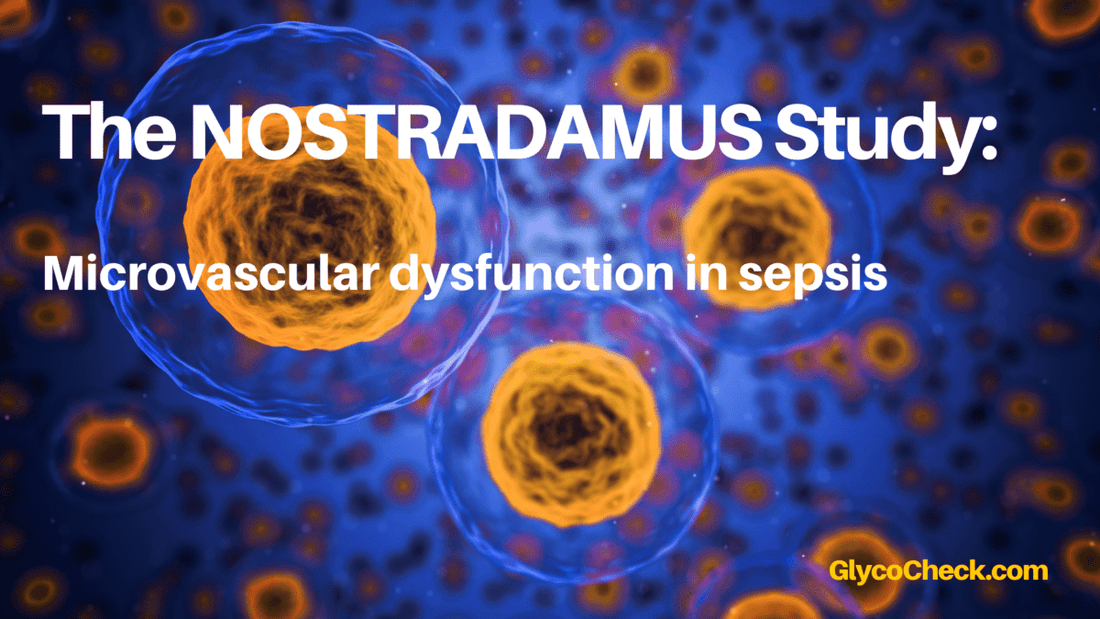
The NOSTRADAMUS Study: Microvascular Dysfunction in Sepsis
Share

A new study using GlycoCheck, and co-authored by GlycoCheck Chief Science Offer, Dr. Hans Vink, reports new findings of research on patients with sepsis. The study, titled “Identification of novel sublingual parameters to analyze and diagnose microvascular dysfunction in sepsis: the NOSTRADAMUS study” was published in Critical Care. Critical Care is a high-quality, peer-reviewed, international clinical medical journal that provides a comprehensive overview of the intensive care field.
“For the first time, we can now determine quantitative microvascular scores that correlate very well with accepted clinical parameters in individual sepsis patients for a wide range of clinical severities,” said Dr. Vink, Co-Founder of GlycoCheck.
“The new GlycoCheck software system represents a significant upgrade for researchers and healthcare practitioners,” said Robert Long, CEO and Co-Founder of GlycoCheck and Microvascular Health Solutions. “For several years, GlycoCheck has been used globally in groundbreaking research to understand the complex nature of the endothelial glycocalyx.”
“The NOSTRADAMUS Study confirms what we’ve suspected for some time,” Long adds, “that GlycoCheck should be in every emergency room and hospital to quickly evaluate patients to identify the severity of septic shock.”
The study concludes that new important diameter-specific quantification and differentiated analysis of RBC kinetics is a key to understand microvascular dysfunction in sepsis. MVHSdynamic, which has a broad bandwidth to detect micro-vascular (dys-) function, might serve as a valuable tool to detect microvascular impairment in critically ill patients.
The full study can be reviewed at Critical Care.
About GlycoCheck:
GlycoCheck analyzes glycocalyx, endothelium, and capillary function. It analyzes capillaries that are as small as 4 microns, so small that 100 of these tiny capillaries fit inside a human hair. In just minutes, 100,000 vessels are measured, with 1,000 measurements calculated per vessel resulting in over 100 million calculations.
GlycoCheck testing has been used as part of more than 70 peer-reviewed research studies from hospitals and universities worldwide. Learn more, or schedule a demonstration of GlycoCheck, please contact us.
